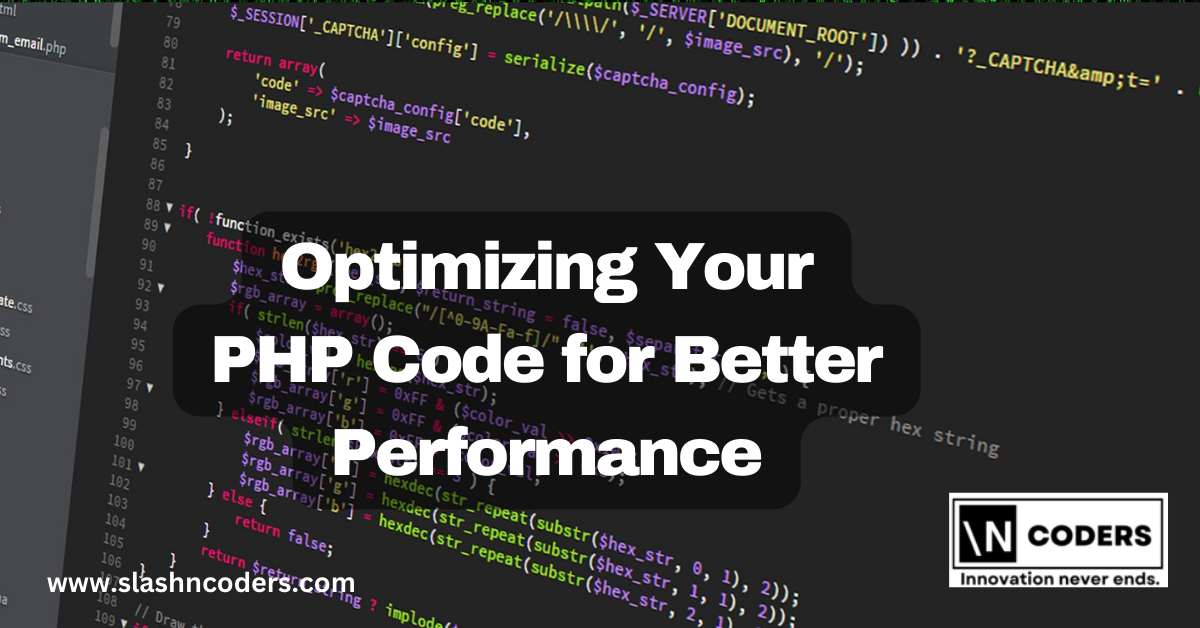Optimizing your PHP code can have a significant impact on the performance of your website or application. By making a few small changes, you can improve the speed and efficiency of your code, resulting in a better user experience for your visitors. In this blog post, we will discuss some tips and best practices for optimizing your PHP code.
- Use the latest version of PHP
Keeping your PHP installation up-to-date is an important step in maintaining the performance of your code. Newer versions of PHP are often faster and more efficient than older versions, and they also come with new features and improvements that can help you write more efficient code.
- Use a PHP accelerator
A PHP accelerator is a program that speeds up the execution of PHP scripts by caching the compiled bytecode in memory. This can significantly reduce the time it takes for your scripts to execute, resulting in faster page loads for your visitors. Some popular PHP accelerators include APC, XCache, and OpCache.
- Minimize the use of global variables
Global variables can cause problems with scope and can make your code harder to understand and maintain. Instead, try to use local variables as much as possible and pass data between functions through function arguments. This will help to make your code more organized and easier to understand.
- Avoid using regular expressions
Regular expressions can be very powerful, but they can also be very slow. If you need to perform a lot of regular expression operations, it may be more efficient to use a different method. For example, you could use string functions like substr() and strpos() instead of regular expressions.
- Use the right data types
Using the right data types can make a big difference in the performance of your code. For example, using a string data type when you only need a single character can be much slower than using a char data type. Similarly, using a floating-point data type when you only need an integer can also slow down your code.
- Optimize your database queries
If your website or application relies on a database, it’s important to optimize your database queries to minimize the time it takes to retrieve data. This can be done by using indexes, limiting the number of rows returned by a query, and using the right data types.
By following these tips and best practices, you can optimize your PHP code and improve the performance of your website or application. Keep in mind that optimization is an ongoing process and you should always be on the lookout for ways to improve the efficiency of your code.


